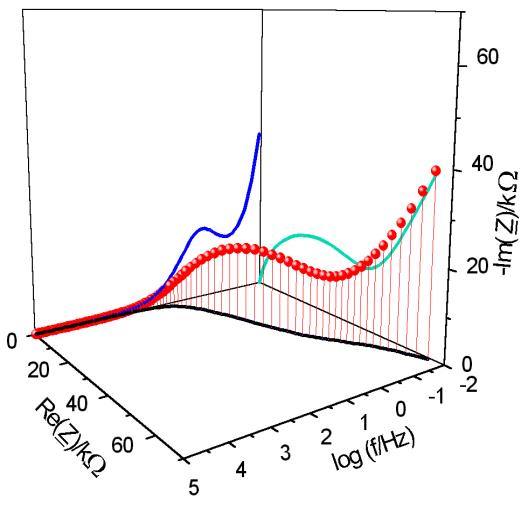With electrochemical impedance spectroscopy (EIS), electrical properties of materials and phase boundary surfaces are measured. Properties such as electrical conductivity, dielectric constant and the kinetics of mass transfer processes and electrode reactions are derived from the frequency dependence of the AC resistance of a measured object with the aid of electrical equivalent circuits
Application:
- Corrosion Research
- Physical chemistry (e.g. kinetics of electrode processes)
- Battery and fuel cell research
- Characterization of sensors
- Materials research
- Biology
Applications:
- Characterization of corrosion protection and passive layers
- Paint characterization
- Effectivity of inhibitors
- Activity of catalysts
- Dielectrics, separation of bulk and interface properties of polycrystalline materials
- Mott-Schottky analysis, e.g. on metal oxides – passive layers
- Determination of the capacity of the double layer
Further Equipment:
- High temperature cell up to 1000°C
- Adapter for 4-point measurements with “active shielding”
Specifications:
Zahner IM6e
- Frequency range 10 μHz – 8 MHz
- Amplitude (rms) 1 mV – 1 V
- Potentiostat
HP 4192A
- Frequency range 5 Hz – 13 MHz
- Amplitude (rms) 5 mV – 1.1 V
- Combined with 3D nanopositioner
Solartron 1260
- Frequency range 10 μHz – 32 MHz
- Amplitude (rms) 5 mV – 3 V
- Combined with Keithley 428 current amplifier
Solartron 1250
- Frequency range 10 μHz – 65 kHz
- Amplitude (rms) 10 mV – 10.23V
- Combined with potentiostat ECI 1286A
Measurements possible in 2-electrode configuration, under potentiostatic control with 3-electrode or in 4-electrode configuration (4-point measurement).

